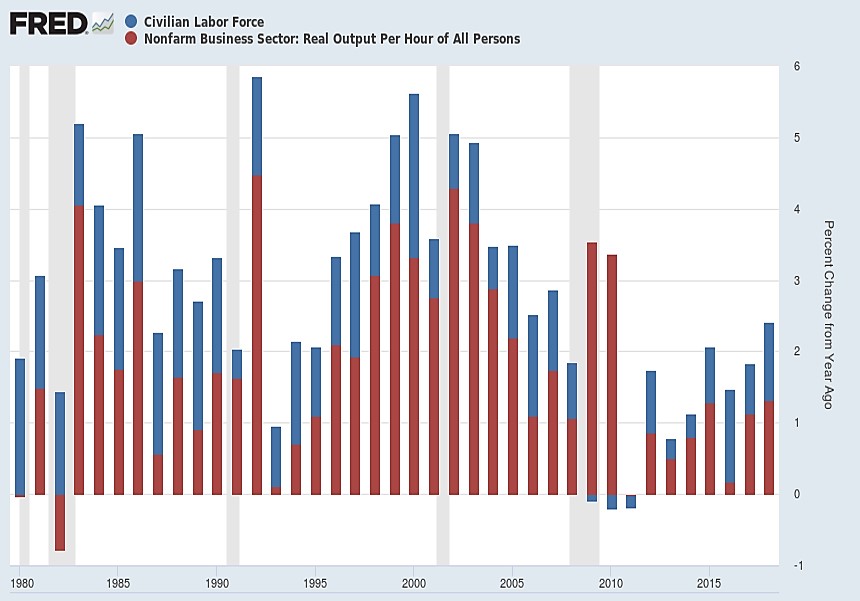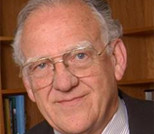Golden Eggs and the Challenge of Our Time
Can we get capitalism’s golden goose to lay more eggs, and do so soon enough to avoid the Washington-planned economy that many now envision? That appears to be a key question in 2019.
We’re facing a series of related choices between private and public decisions, permitting or breaking up big businesses, and encouraging today’s largely market-based system versus building a future with significantly more federal regulation. In making each choice, we must ask whether our elected officials are really brighter and more ethical, on average, than the people they represent.
Some of those planning a presidential run in 2020, including members of the current Trump administration, are focused on counting the goose eggs and arguing thatbetter policies will bring more of them.
Others seem less concerned about the count but suffer heartburn over who gets the eggs once they are produced; they express loudest concern that so few people get the largest eggs.
Still others just seem to despise the whole dirty business of capitalism’s golden goose. They love golden eggs, but hate egg-laying geese, which they associate with people acting primarily out of self-interest, appearing at times to care more about themselves and their loved ones than humanity in general … as they do.
The goose haters, like a long series of authoritarian dreamers before them, believe that if given the opportunity, they and their colleagues could move all the economic chessmen in more benevolent, less selfish ways. They may even understand that several centuries of history stand opposed to the prospects of their success, but still believe this time to be different. It’s just a matter of getting the right people in the right places at the right time.
Of course, the cost of running an organization that coordinates the economic and political life of 327 million Americans has to be reckoned with. It doesn’t come for free. It’s also possible that the managing apparatus turns out to be so large and elaborate that the production of a meticulously managed economy becomes an obscure and declining curiosity. As the administrative state becomes larger, a time may come when the picture frame becomes more important than the picture itself. When that occurs, it may be wiser to be a frame builder than a picture painter.
In spite of lofty rhetoric, the goose haters—and indeed, all three groups—face a somewhat humble problem. Whether through capitalism, a socialistic bureaucracy, or a communistic regime, the eggs we produce are determined by just two variables: how many people work each day and the tools—mental, physical, mechanical, and digital—with which they work.
Thus, no matter what high-sounding name we assign to the process of organizing economic life, growth in our resources will depend on the growth in the size of the work force and the productivity of those within it. When we add those two variables together, we have an estimate of GDP growth, the best way we know of to track golden eggs.
This gets us to the U.S. economic situation today. This chart, which draws on U.S. Federal Reserve data, portrays annual growth for the U.S. labor force and labor productivity. The data are stacked so that we can see how the variables look when they are summed. The chart also contains shaded bars that identify recessions. The unusually tall bars that follow recessionary periods should be disregarded, since productivity is always distortedly high when the economy moves from negative to positive growth.
A quick scan identifies the current challenge: Recent decades just don’t compare favorably with the 1990s and early 2000s. We face slower growth in the working-age population and worker productivity. The baby boomers are retired, immigrants no longer see a U.S. welcome mat, and the expanding dotcom and internet bubble seems to have stalled in the face of taxes and regulation.
Given the lay of the land, even with some regulatory and tax relief taking place, expanding the count of golden eggs will be difficult. Changing the rules of the game to require government provision of healthcare, free education, wealth taxes, corporate breakups and more and larger government agencies is not likely to help, at least if past experience is any indication. We must remember that government bureaucrats armed with command-and-control regulation do not launch golden eggs. Also, when things seem to be free, lots of people will line up and demand access. The resulting necessary rationing will require a larger bureaucracy, and that will further reduce the production of golden eggs.
The current experience in Venezuela, the longer test in Cuba and North Korea, and China’s dramatic move toward prosperity by abandoning communism for a mix of markets and socialism tell us there is simply no good substitute for individual freedom.
But does this mean that we live in the best of all possible worlds? Not at all. If there’s a way to ramp production back up on those golden eggs, it means finding ways to unrig the system where it has been rigged by special interest interaction with politics, to decentralize decisions so that accountability is more vivid and accessible, and to avoid empowering politicians and their appointees to pick winners and monopolize markets.
And we should always remember that the economic picture is more important than the décor on the frame that holds it.














